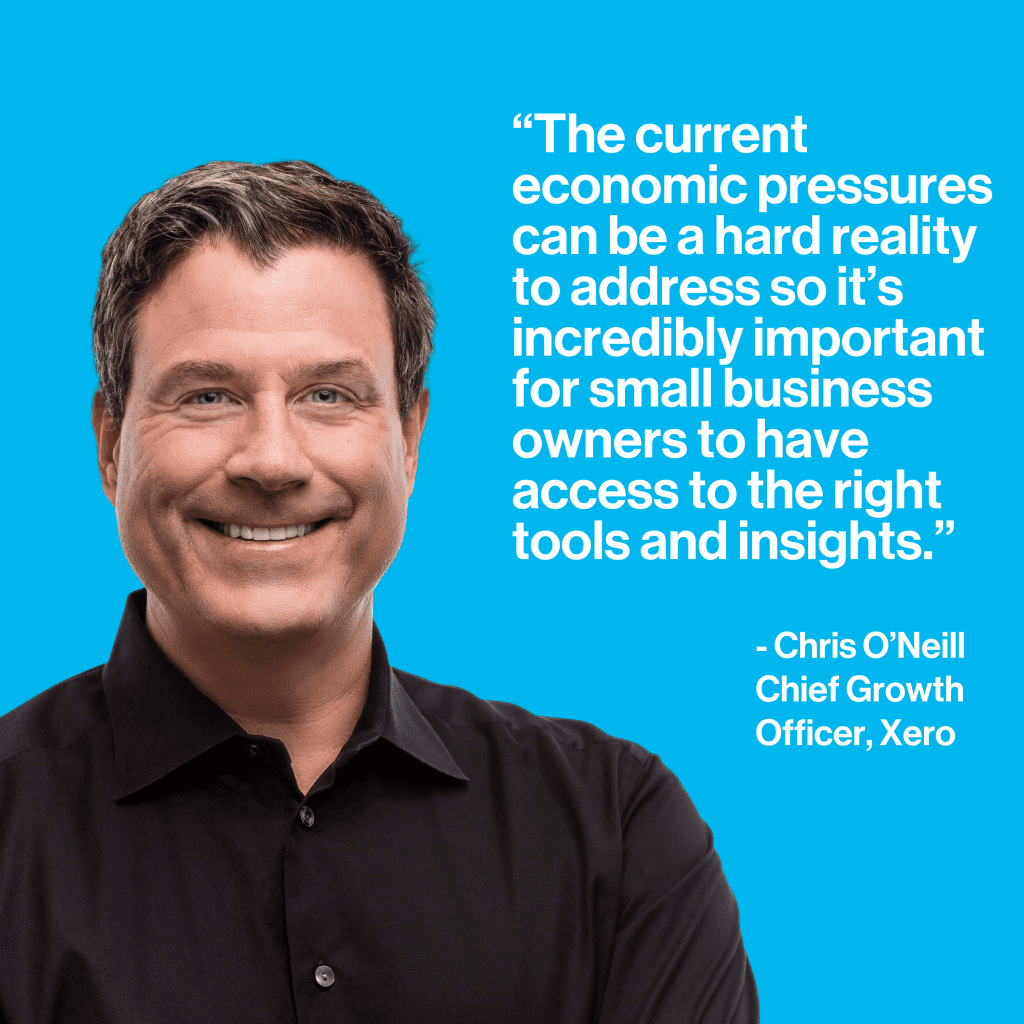Sales growth for small to medium-sized businesses (SMBs) slowed in 2022. So says Canada’s most reliable source for accurate and deep intuitive understandings into the small business economy: the Xero Small Business Insights (XSBI) program, which provides unique, regular, and timely data showing how small businesses are performing and the important role they play in our community.
According to XSBI, you can pin this decline on the current cost-of-living crisis and how it continues to affect Canadian households. As these households buy fewer goods and services this has flow-on impacts to small businesses, too. Sales may have slightly risen year-over-year in September 2022, but this was entirely due to price rises. Use the Consumer Price Index to remove those price impacts and you’ll see that small businesses sold 3.5 percent fewer goods and services than they did in September 2021.
Also highlighted by the data: the importance of paying small businesses on time. Compared to 2021, late payments and time to be paid are longer. And in contrast to other countries, the digitization of payments in Canada is lagging. All this when every dollar counts for small businesses.


Xero streamlines accounting processes for SMBs. It provides an easy-to-use platform that allows users to manage their finances online from anywhere, at any time. From invoicing to bank reconciliations, Xero automates many manual accounting tasks. It solves the problem of traditional accounting software being difficult to use and requiring a significant amount of time to manage.
Xero’s cloud-based technology also allows for real-time collaboration between business owners, their accountants, and other stakeholders, empowering them with round-the-clock access to up-to-date financial information.
Xero is in the business of helping businesses be in better control of their money management. Its enhanced invoicing makes payments easier and helps businesses get paid faster. They also develop business-lending solutions designed specifically for small businesses.
Small businesses are the backbone of the Canadian economy, of course. According to Statistics Canada, in 2021, they made up 98.1 percent of all employer businesses in the country. Small businesses further employ nearly eight million Canadians and have been especially integral in driving job growth. In fact, over 90 percent of all new jobs created in Canada in the last decade were generated by small and medium-sized enterprises.


“This importance of small businesses as job creators means it is in the interests of all Canadians to shop with small businesses as often as possible as we all navigate the current challenging economic environment. That way when economic conditions eventually start to improve, small businesses will be well positioned to help drive the economic recovery,” said O’Neill.
Beyond job creation, small businesses contribute significantly to the Canadian economy’s overall output. As a reminder of their importance in driving economic growth and prosperity, small businesses contributed 36.7 percent to Canada’s GDP in 2019, generated by the private sector. The contribution of medium-sized businesses was 13.7 percent. Large businesses? 49.6 percent.
To help small businesses thrive and drive innovation, growth, and prosperity in the Canadian economy, you might say it “takes a village” of support from various stakeholders. Customers play a vital role. So do suppliers, distributors, and partners. So do government and regulatory bodies. So do forms of broader community collaboration, like mentorship and networking.
So do all-in-one accounting solutions like Xero, which closely collaborates with fintech partners to provide the services that small businesses need, all with the simplicity of a seamless integration process via the Xero App Store. That same Xero App store is currently home to over 1,000 apps—everything from payroll to timesheet and scheduling, to payments and document capture.


Then there are initiatives like the Xero Small Business Insights program. It started in 2017 in Australia, before expanding to New Zealand, the UK, and beyond. The aforementioned XSBI is a pivotal source of insight for government departments, researchers, think tanks, industry groups, and small businesses. Today, it provides anonymized and aggregated data from tens of thousands of small business customers across Canada and North America.
At its core, Xero’s approach is to authentically exist as a small business platform: something that creates more value for its partners than it does for itself.
When it comes to how and why it builds, that is Xero’s guiding principle.














